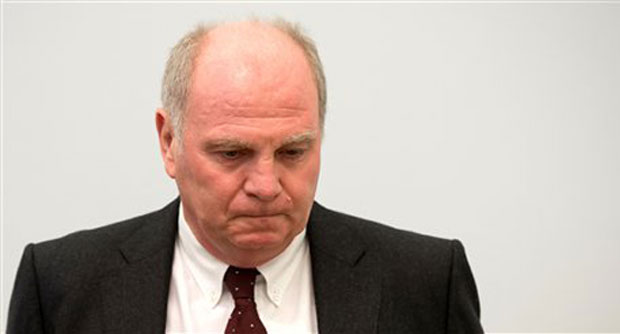Hoeness accepts conviction, quits as Bayern boss

In this March 10, 2014 file picture, Bayern Munich President Uli Hoeness arrives at the regional court in Munich, Germany. AP FILE PHOTO
MUNICH, Germany—Uli Hoeness won’t appeal against his prison sentence for tax evasion, and said on Friday he’s quitting as president of Bayern Munich to prevent damage to the European champions.
Hoeness, one of the most prominent figures in German football, was convicted on Thursday of evading millions of euros in tax through an undeclared bank account and sentenced to three-and-a-half years in prison. The verdict drew a largely positive response in a country where tax evasion is deeply and increasingly frowned upon.
Hoeness’ lawyer initially said he would file an appeal. Hoeness, however, said in a brief statement posted on Bayern’s website on Friday that he decided after talking with his family to accept the verdict.
“This corresponds with my personal understanding of decency, attitude and personal responsibility,” he wrote. “Tax evasion was the mistake of my life. I am facing up to the consequences of this mistake.”
Hoeness said he was stepping down immediately as club president and as the chairman of Bayern’s supervisory board. He said he wanted “to prevent damage to my club.”
“Bayern Munich is my life’s work and it will always remain so,” he said. “I will remain linked with this great club and its people in other ways as long as I live.”
Hoeness thanked Bayern supporters and his friends for their support. The club stood by him through the investigation.
Bayern won the treble of Bundesliga, Champions League and German Cup last season and could repeat that feat this season.
As a player, Hoeness was a Bayern star who won the 1972 European Championship and the 1974 World Cup with West Germany and three straight European Cups—the predecessor of the Champions League—before retiring in 1979 with chronic knee problems.
Under his guidance as general manager, Bayern built financial reserves rarely seen in debt-ridden European football.